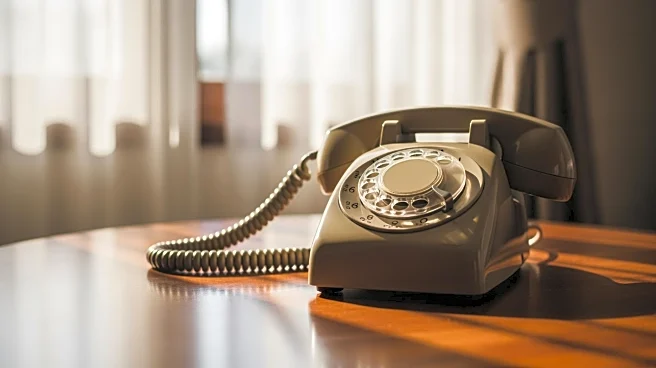What's Happening?
The self-help industry, valued between $45 billion and $59 billion globally, is under scrutiny for its potential negative impact on personal well-being. Jessica Lamb-Shapiro, author of 'Promise Land: My Journey Through America’s Self-Help Culture,' explores the pervasive influence of self-help culture in her book. Lamb-Shapiro, whose father was a child psychologist and self-help author, delves into the industry by engaging with various self-help guides. Despite the industry's appeal, she questions whether the pursuit of self-improvement leads to isolation rather than fulfillment. The self-help genre, which dates back to the mid-1800s with Samuel Smiles' bestseller 'Self-Help,' has evolved to include modern influencers like Brené Brown, who combine academic research with self-help advice. Lamb-Shapiro suggests that while self-help books can offer valuable insights, they may also contribute to an unhealthy obsession with productivity and self-optimization.
Why It's Important?
The critique of the self-help industry highlights a significant cultural shift towards individualism and self-optimization, which may have broader implications for societal well-being. As people increasingly turn to self-help resources for personal growth, there is a risk of diminishing community engagement and interpersonal relationships. This trend could impact mental health, as individuals may prioritize self-improvement over seeking support from others. The industry's growth reflects a societal demand for quick solutions to complex personal challenges, potentially overshadowing the benefits of traditional therapeutic approaches. Understanding the balance between self-help and community support is crucial for fostering a healthier society.
What's Next?
The self-help industry may continue to evolve, integrating more evidence-based approaches and expanding its reach through digital platforms. As the demand for self-improvement resources grows, there could be increased scrutiny on the effectiveness and ethical implications of self-help products. Stakeholders, including authors, publishers, and mental health professionals, may need to address the potential downsides of self-help culture, promoting a more balanced approach to personal development. Additionally, there may be a push for greater transparency and accountability within the industry to ensure that consumers receive reliable and beneficial guidance.
Beyond the Headlines
The self-help industry's influence extends beyond individual well-being, potentially affecting cultural norms and societal values. The emphasis on self-optimization may contribute to a culture of competitiveness and perfectionism, impacting workplace dynamics and social interactions. Furthermore, the industry's focus on individual success could overshadow collective efforts to address broader societal issues, such as inequality and community support systems. Exploring these deeper implications can provide insights into how self-help culture shapes modern society and inform strategies for promoting holistic well-being.








